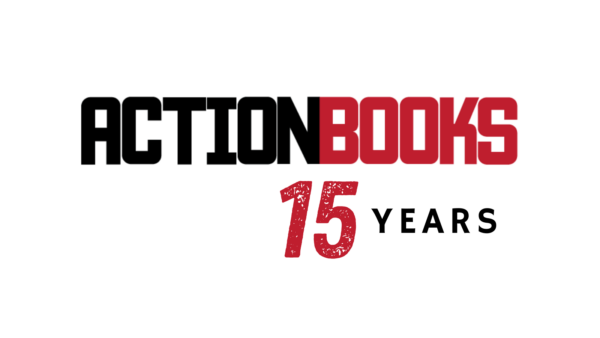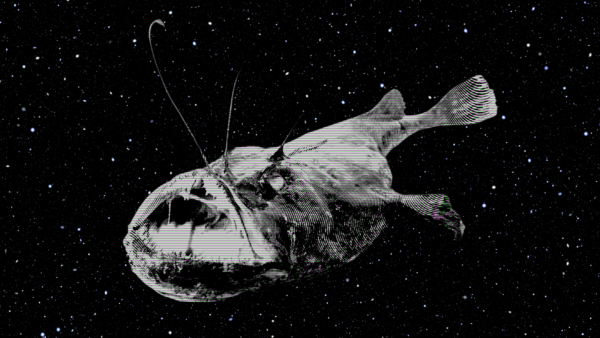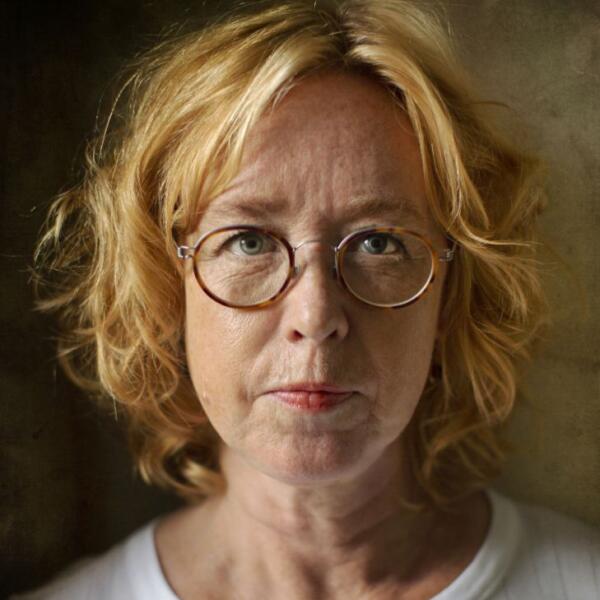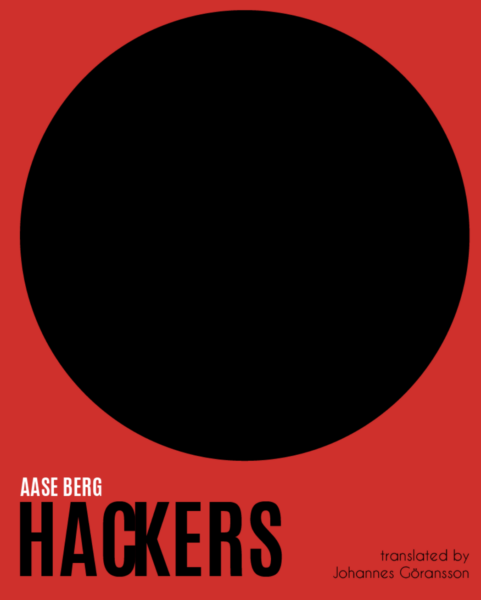 Paul Cunningham: How did you and Johannes Göransson first meet?
Paul Cunningham: How did you and Johannes Göransson first meet?
Aase Berg: Johannes first came across my work when he read Hos rådjur (With Deer), my debut collection, and he wanted to translate it. He seemed freaky enough to understand that book, but I still saw it as more or less untranslatable due to all the effervescent language, double meanings, and made-up words. But Johannes’ approach to translation turned out to be both creative and fun, so it really exceeded my expectations. Sometimes I wonder if the poems are better in English.
PC: This might be a difficult question, but which of your books is your favorite and why?
AB: My favorite book is usually the last book to come out, so Hackers is currently my favorite. I haven’t really understood myself in any of my own books. I mean, there is still a lot for me to sort out in my work. So much that I’m unaware of, because my writing constantly surprises me. Hackers has so many layers, it’s both insidious and fascinating. But, at the same time, I also like Dark Matter because it’s so visual. I like its worlds, wherever they might come from. Dark stages, scenes. And right now I’m working on a new collection that is taking a VERY LONG time to write, because I’m trying to write chronologically (about an identification with deep-sea fish). It’s about those transparent blobs on a seabed that God forgot. In their world, time passes incredibly slowly, absolutely nothing happens, they just slither around in the dark, glaring at one another. This book is called Aase’s Death, and it’s just about things that children enjoy: monsters in the Kuril Trench, dinosaurs, excavators, cars, police, space. Giant, infantile substances. A return to some kind of zero point.

Image Credit: Paul Cunningham
PC: What can you tell us about En uppblåst liten fittas memoarer (An Inflated Little Pussy: Memoirs), your new book from Albert Bonniers Förlag? What were some of the challenges you faced writing a memoir?
AB: Actually, it’s not really a memoir. It’s more of a parody of memoirs. Most memoirs are written by important men who brag, this is more about the focal points of pain. And, there were still challenges because it’s structured according to a psychological chronology as opposed to a temporal one. And there are many panoramic flights over mountains and valleys, because it’s told from the point of view of a golden eagle, a fairly large golden eagle, too. It stalks the main character, Aase, throughout her life and it thinks she’s an idiot.
PC: Are there any new up and coming Swedish writers you’re excited about?
AB: I sit on the jury for one of Sweden’s two major debut awards—the Borås Tidning debut award—so I have actually read every debut that was published last year. The winner is named Erik Lindman Mata and his collection of poems Pur is brilliant. But I’m also curious about where Hanna Johansson’s writing will take her. Her debut novel Antiken is absolutely wonderful.
PC: What are your expectations for poetry being written in 2021?
AB: I imagine that the pandemic will have a lasting effect on writing. Some of us poets are introverted muppets who are feeling the threshold of isolation. This strange situation will leave traces in our poetry. We may all become deep-sea fish.
PC: What advice do you have for emerging poets?
AB: Forget your readers, forget acknowledgment. Poetry is not about making connections. You don’t need to be understood, you don’t even need to understand yourself. Poetry is only research into the unfathomable.
Translated by Paul Cunningham

Photo Credit: Sara MacKey
Aase Berg is the author of ten books, including most recently Hackers and the controversial autofiction The Hag. Several of her books have been published in English translation: Remainland: Selected Poems of Aase Berg, With Deer, Dark Matter, Transfer Fat, and Hackers. She has won numerous awards for both her poetry and criticism.
